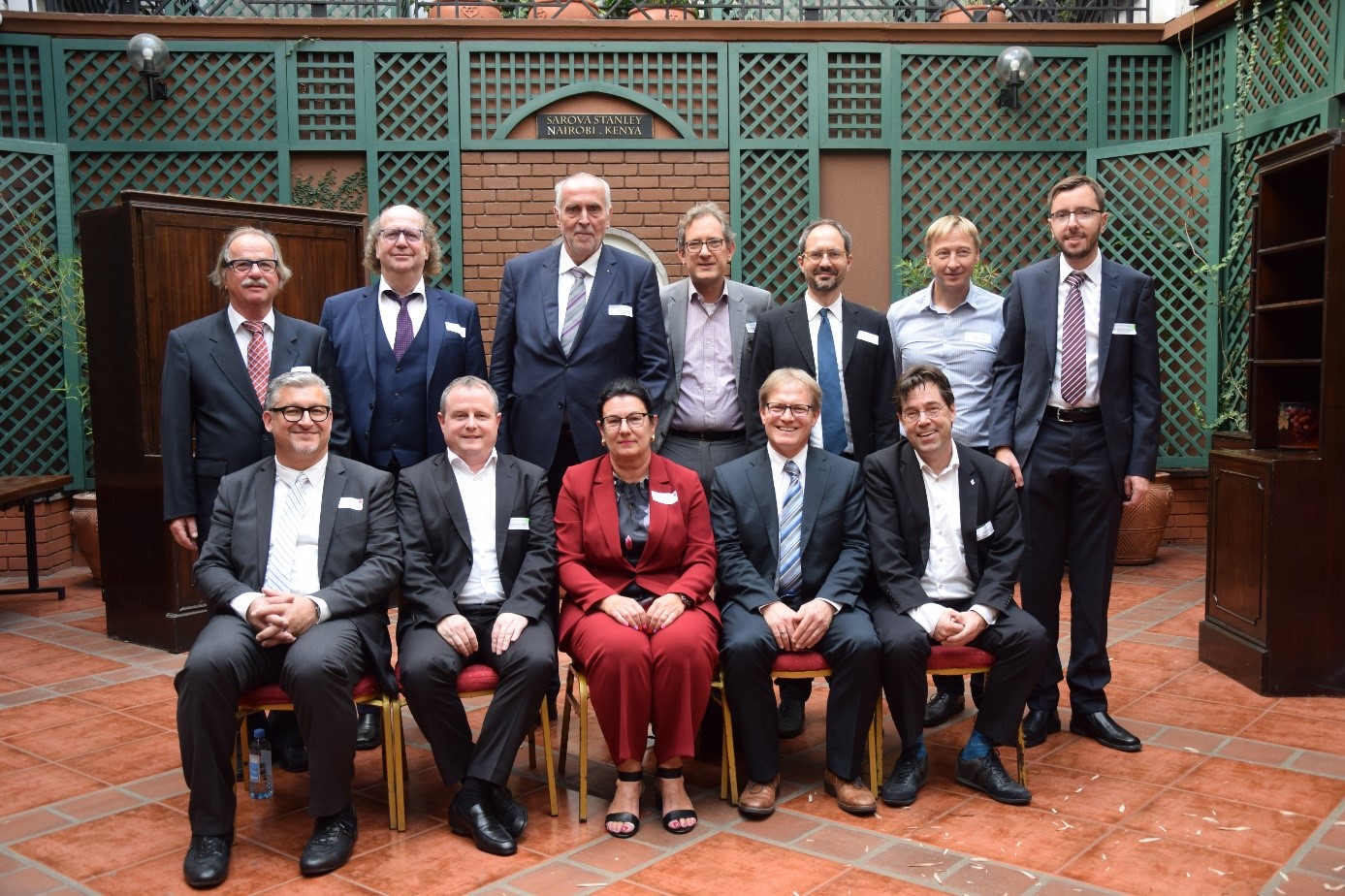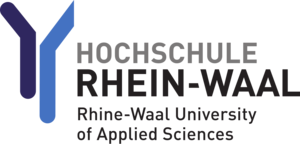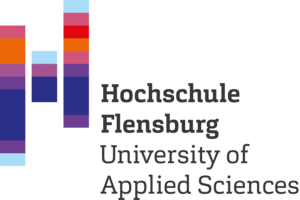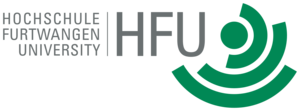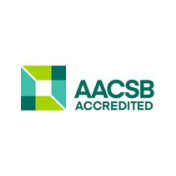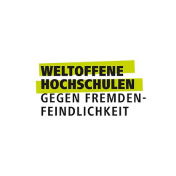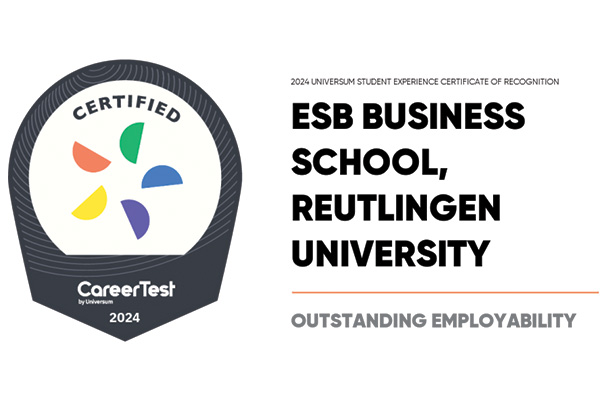Network HAW Kenia
Networking and qualification measures on the model of the German University of Applied Sciences in Kenya.
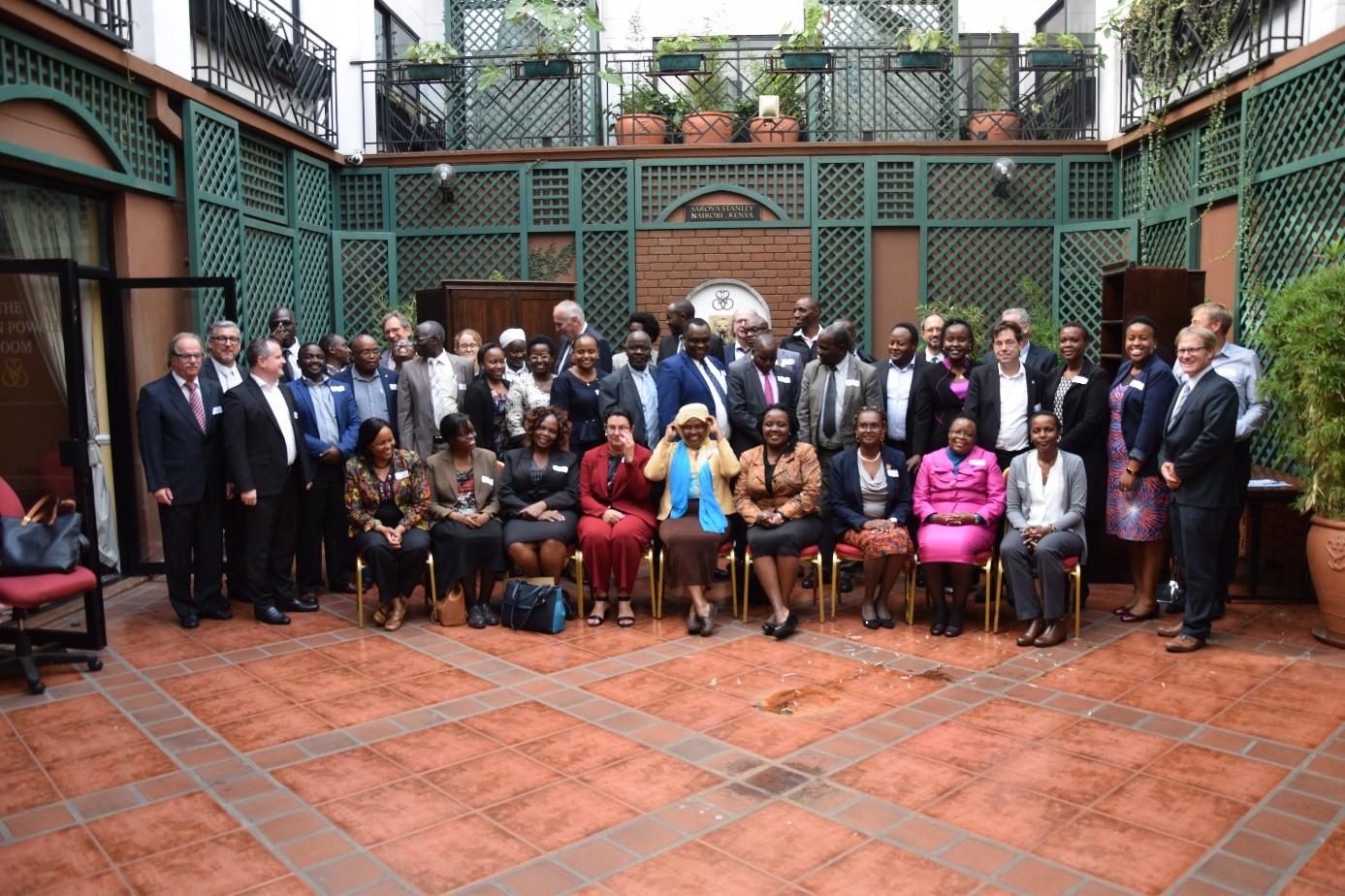
The project (2017 to 2021) aimed with a variety of different sets of measures to identify the needs of the relevant Kenyan stakeholders, to intensify and establish personal and institutional contacts between Germany and Kenya and to familiarise Kenyan university teachers and young scientists with the German model of the "University of Applied Sciences" (HAW) and teaching at HAWs.
The above quotation is an example of the voices of our Kenyan interlocutors, whom we, as a university consortium, have had the privilege of meeting over the past two years. Representatives from universities, industry and the Kenyan government are convinced that there is a great need for reform in the Kenyan education system. Through three consortium visits in the first year of the project as well as additional research, we were able to gain a comprehensive picture of the Kenyan university landscape, the political conditions and the needs of industry. We were thus able to achieve our goals of identifying the needs of Kenyan actors and establishing contacts within the project period.
In addition to discussions about the quality of research and teaching in the respective universities, the implementation of internships and industrial stays and the legal framework conditions, the technical equipment of universities was also addressed (and also experienced through laboratory tours). The greatest needs we identified are in the area of university-industry cooperation. Professors and staff do not have the necessary practical experience in industry and thus cannot carry out applied teaching. There is also a lack of the necessary contacts and institutionalised cooperation to realise knowledge and know-how transfer. There are not enough internships for students. In addition, industry complains that graduates bring too little practical experience with them and also do not have the necessary transversal skills to be quickly employable. For this reason, the foundation of a "German-East-African Advisory Board for Applied Sciences". This board brings together leading experts from Kenya and Germany, from universities and the business community, to network and exchange ideas for the promotion of applied sciences.
Project aims
Kenyan university teachers and young academics have sound knowledge of the German HAW model.
Personal and institutional contacts between Germany and Kenya have been established or intensified.
Kenyan university teachers and young academics are experienced in designing and implementing practice-oriented teaching according to the German HAW model, including the corresponding digital competencies (e.g. in the area of blended learning)
First insights into the institutionalisation of applied university teaching East Africa have been gained
Contacts/networks with companies are established and consolidated
Knowledge about the HAW model is being disseminated among the target group of future students
Intercultural understanding and understanding of different academic traditions has been strengthened on both sides (overarching goal)
Set of measures
The focus of all project activities was on communication with stakeholders, understanding the different education systems, exchange of experience and acquisition of knowledge and competencies.
The project comprises a large number of different sets of measures, which were implemented in Germany as well as in Kenya.
Stakeholder mapping and needs analysis
SWOT analysis
Workshop Kenya "Law and Organisation HAW"
Workshop Germany "Teaching at HAW"
MINT summer school for Kenyan lecturers in Germany
Visiting Kenyan doctoral candidates
Event "Establishment and expansion of research networks" in Germany
Event "International Association of Business Engineering Professionals" in Kenya
Learning Factory Conference in Germany TU Braunschweig
German-East African Advisory Board for Applied Sciences
Formation of working groups of the German-East African Advisory Boards
Future Engineers Vacation School
Preparation of a White Paper
Participating universities
